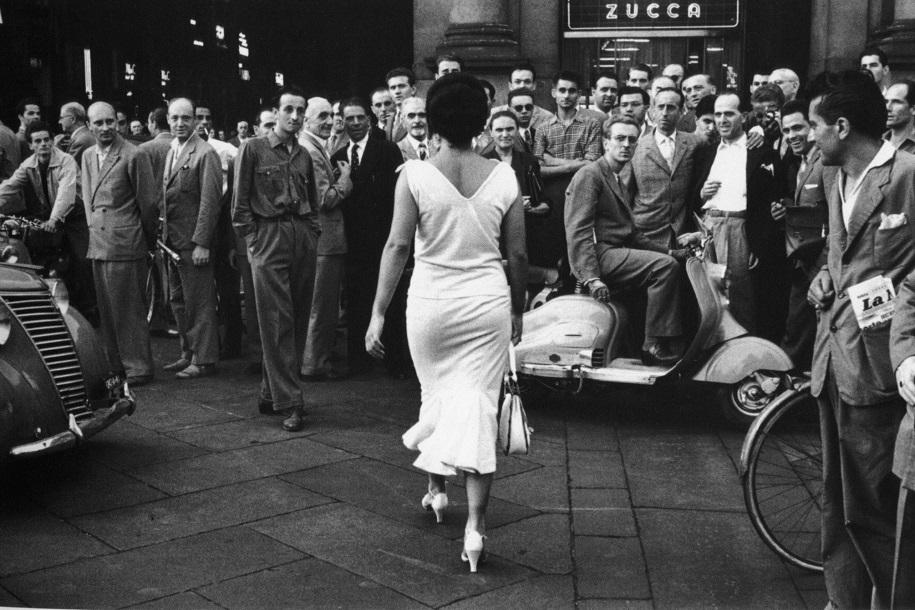Sexual Harassment in Italy

After recent sexual harassment allegations were made against the film producer Harvey Weinstein and various other high profile figures, the phrase “Me Too” or “#metoo” spread virally over social media in an effort to condemn sexual harassment. The phrase, which gained popularity with the help of numerous celebrity supporters, has appeared millions of times online around the world. But what about in Italy? Does the hashtag “ancheio” have as much momentum as the hashtag “metoo”?
As reported in the New York Times earlier this month, politician Laura Boldrini, president of Italy’s Chamber of Deputies, led a meeting in Rome seeking to address how in Italy, sexual harassment is often ignored. Particularly, Ms. Boldrini discussed how the Weinstein scandal started an international movement attacking sexual harassment, but how such movement has not had the same effect in Italy due to what she believes to be a stubbornly patriarchal society.
Italian actress, Asia Argento, who voiced allegations of sexual abuse against Weinstein, stated according to the New York Times, “[t]his historic moment doesn’t mean much to Italy, sadly.”

Lorella Zanardo, an Italian women’s rights advocate, addressed the apathetic reaction in Italy, stating, “[i]t’s not shocking, because in the end, Italians think it’s normal.”
According to a Guardian article, a court in Sicily last year found an employer innocent of sexual harassment charges because his groping of colleagues was “driven by an immature sense of humor rather than a desire for sexual gratification.”
Earlier this month, Variety reported that sexual harassment allegations against Italian film director Fausto Brizzi did not appear to have any negative impact on the box office sales of his new film, as Italian moviegoers “shrugged off” the allegations.

My initial reaction from these articles, without digging deeper into the history of Italian jurisprudence, is that sexual harassment in Italy is more accepted than it is in the United States, to some degree because what Americans believe is “sexual harassment” may not be what Italians believe is “sexual harassment.”
I do not believe that Italy turns their attention away from serious allegations of sexual abuse; to the contrary, I think that Italy prosecutes such behavior. But there does seem to be more tolerance for “sexual harassment” in Italy, compared to other parts of the world, which is why Ms. Boldrini addressed such issues at the recent meeting in Rome.
I do find Italy as a whole to be a more sexual country than the United States. Magazine and billboard advertisements that Americans would view as pornographic are normal in Italy, completely uncensored. Italy is known as an aggressively flirtatious country [see article here] and one of the most sexually satisfied countries in the world [see article here]. Italian men behave in certain ways due to cultural norms and a difference in mentality, and their behaviors have become a part of their society. I think that this way of life contributes to Italy’s view on sexual harassment, and helps us understand why the approach to sexual harassment in Italy, is different from the approach to sexual harassment in the United States.
Your thoughts?
Recommended Posts

Livernano – The Superior Tuscan Resort
June 25, 2021

Covid in Italy During the Christmas Holiday
December 21, 2020

How Tourists Are Taken Advantage of at Italian Coffee Shops
January 24, 2020
Comments
Comments are closed.

Well, the topic is not easy, and there’s a lot to say about it. But, in my opinion, I think that there’s a limit for everything. Some women get offended by only a glance from men, other women instead are not at all bothered not even when a man put a hand on their butt. It depends on the personal perception and thoughts about the concept of “sexual harassment”.
For what concern Laura Boldrini, well, she’s considered one of the WORST politicians in the current Italian government. She’s deeply despised by the most of Italians, included myself, due to her political conduct.
Sexual blackmail is something different, and much more heavy.
Boldrini is not a member of the government and your opinion about her is strictly personal
I totally agree. And, please, Anthony, avoid dumb stereotypes.
Which part were the dumb stereotypes?
I remember when traveling to Italy, I heard stories of “la mano nera”, and how it was just part of society, you had to accept it (especially if a Carabinieri did it!).This was in 2006. The stories angered me then.
I was staying at an expensive hotel in Venice – the night clerk walked me around the building to let me in the entrance door to where my room was and grabbed me and started forcing kisses on my face – I was pushing back, fighting to keep him physically away, he was very persistent and insistent, acting as though this was normal and to be expected. I formally complained about it to the day staff the next morning. They said “You feel this is a problem?” As if to say “You mean you didn’t like it?” I was apalled… I said yes it certainly is a problem and unacceptable. He called the night clerk at home and asked him if it happened. Of course the noght clerk denied it. At that point I turned around and told other hotel customers who were standing in line to “watch out” for the night clerk. That got their attention so they assure me he would lose his job. It was my last morning in Venice, so I have no idea if this was true, but I learned a lot about Italian attitudes toward harassment.
Very interesting story, Ida. Thanks for sharing.
Men will be men. There is nothing wrong with a squeeze on the tush, the old fashioned Italian way.
Italy is a sexist country, it’s as simple as that and Italian women are accustomed, unfortunately, to sexual harassment in the workplace. Being used to it does not mean this is acceptable or ‘normal’. This country lives in the Middle Ages in terms of rights. I am an Italian woman, born and bred and I know what I am speaking about.
Great Article
The Italians have more sense than the Americans it would appear. These allegations are made but are they all true or accurate? Women are known to have a propensity to lie. I believe women are using this issue of alleged or actual sexual harassment in their agenda to gain power over men…pure and simple. It’s a politically correct ploy to gain political power over the male by endeavouring to build a guilt complex in men and eventually to have then in position as second class citizens.